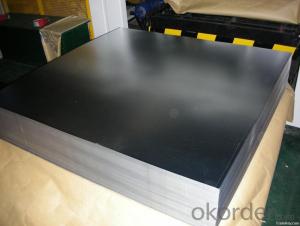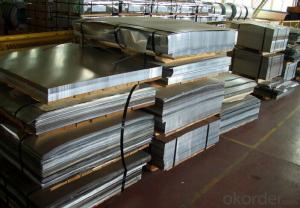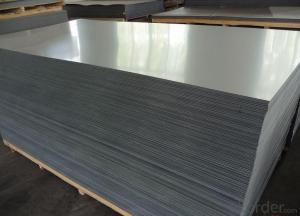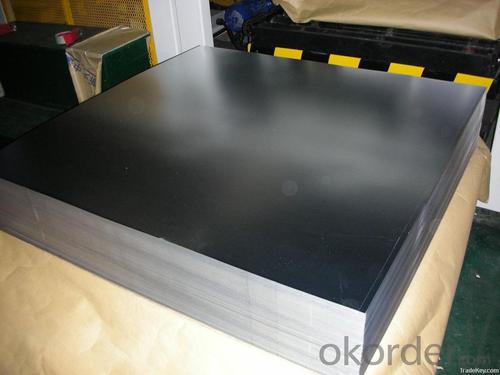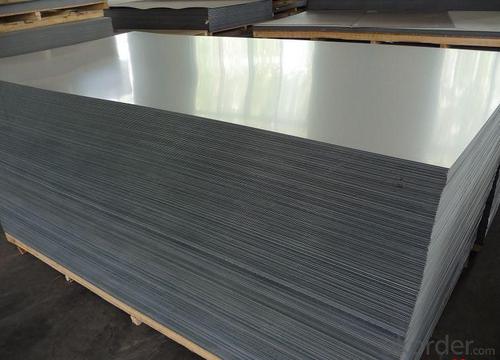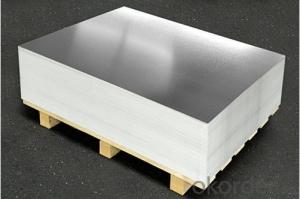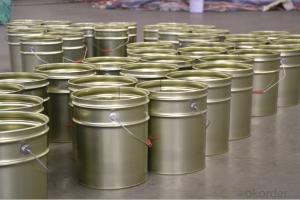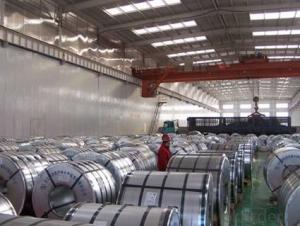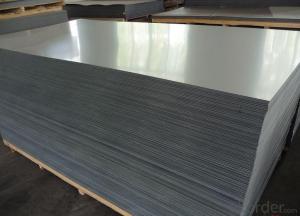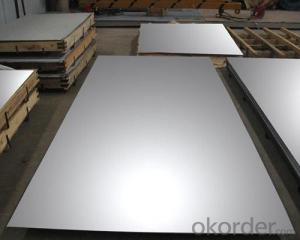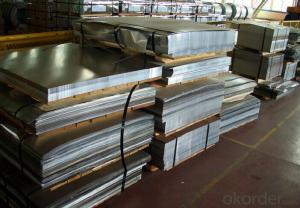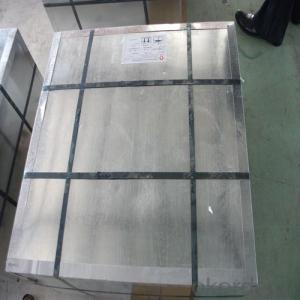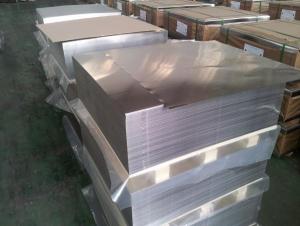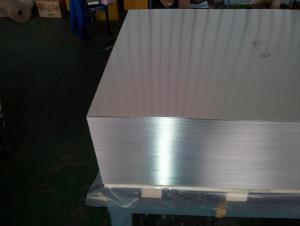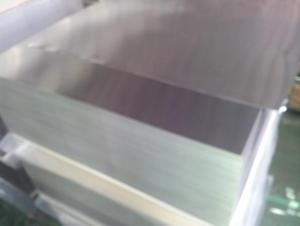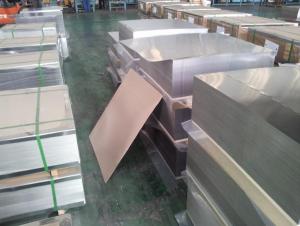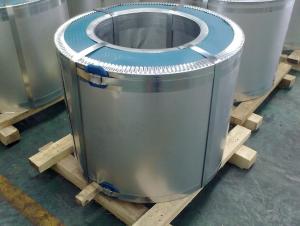Electrolytic Tinplate in Sheets for Tin Packaging
- Loading Port:
- Tianjin
- Payment Terms:
- TT OR LC
- Min Order Qty:
- 25 m.t
- Supply Capability:
- 7000 m.t/month
OKorder Service Pledge
OKorder Financial Service
You Might Also Like
1.Structure of Electrolytic Tinplate in Sheets for Tin Packaging Description
Electrolytic Tin Plate Coils and Sheets for Foods Metal Packaging, is one thin steel sheet with a coating of tin applied by electrolytic deposition. Tinplate made by this process is essentially a sandwich in which the central core is strip steel. This core is cleaned in a pickling solution and then fed through tanks containing electrolyte, where tin is deposited on both sides. As the strip passes between high-frequency electric induction coils, it is heated so that the tin coating melts and flows to form a lustrous coat.
2.Main Features of the Electrolytic Tinplate in Sheets for Tin Packaging
Appearance – Electrolytic Tin Plate is characterized by its beautiful metallic luster. Products with various kinds of surface roughness are produced by selecting the surface finish of the substrate steel sheet.
Paintability and printability – Electrolytic Tin Plates have excellent paintability and printability. Printing is beautifully finished using various lacquers and inks.
Formability and strength – Electrolytic Tin Plates have got very good formability and strength. By selecting a proper temper grade, appropriate formability is obtained for different applications as well as the required strength after forming.
Corrosion resistance – Tinplate has got good corrosion resistance. By selecting a proper coating weight, appropriate corrosion resistance is obtained against container contents. Coated items should meet 24 hour 5 % salt spray requirement.
Solderability and weldability – Electrolytic Tin Plates can be joined both by soldering or welding. These properties of tinplate are used for making various types of cans.
Hygienic – Tin coating provides good and non toxic barrier properties to protect food products from impurities, bacteria, moisture, light and odours.
Safe – Tinplate being low weight and high strength makes food cans easy to ship and transport.
Eco friendly – Tinplate offers 100 % recyclability.
Tin is not good for low temperature applications since it changes structure and loses adhesion when exposed to temperatures below – 40 deg C.
3.Electrolytic Tinplate in Sheets for Tin Packaging Images
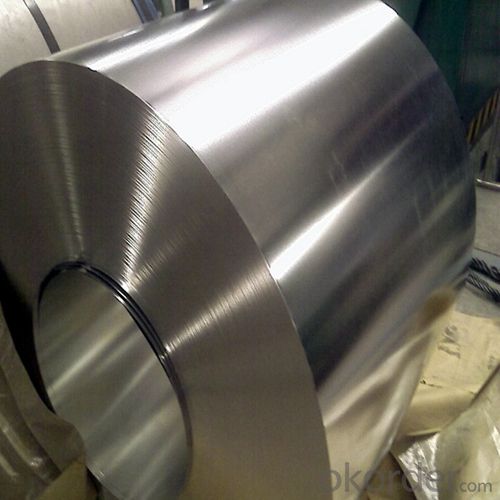
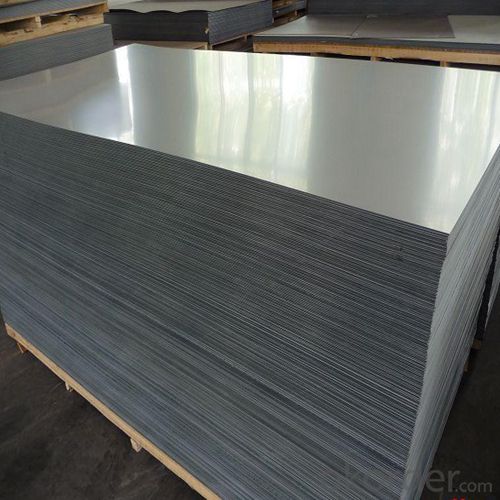
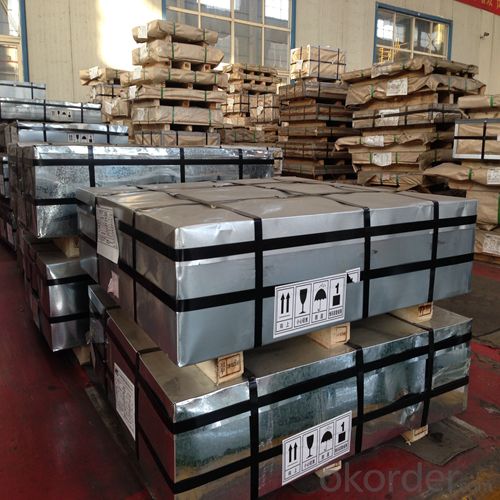
4.Electrolytic Tinplate in Sheets for Tin Packaging Specification
Standard | ISO 11949 -1995, GB/T2520-2000,JIS G3303,ASTM A623, BS EN 10202
|
Material | MR,SPCC |
Thickness | 0.15mm - 0.50mm |
Width | 600mm -1150mm |
Temper | T1-T5 |
Annealing | BA & CA |
Coil Inner Diameter | 508mm |
Weight | 6-10 tons/coil 1~1.7 tons/sheets bundle |
Passivation | 311 |
Oil | DOS |
Surface | Finish,bright,stone,matte,silver |
5.FAQ of Electrolytic Tinplate in Sheets for Tin Packaging
-How to place .an order or contact you ?
Please send us Email. we will give you a quick response in seconds .
- How is your quality ?
All our quality is prime even the secondary quality . We have many years experience
In this field with serious quality control standard . Advanced equipment, We welcome your visit to our factory .
- Q: What are the main countries producing tinplate?
- The main countries producing tinplate are China, Japan, and the United States.
- Q: How does tinplate contribute to the overall ease of opening and closing packaging?
- Tinplate contributes to the overall ease of opening and closing packaging due to its inherent strength and durability. It provides a sturdy and rigid structure that helps maintain the integrity of the packaging, preventing it from easily getting crushed or deformed. This ensures that the packaging remains intact and easy to handle, minimizing the risk of accidental opening or spillage. Additionally, tinplate often comes with convenient features such as easy-to-use closures or pull-tabs, enhancing the user experience and making it effortless to open and close the packaging.
- Q: What are the main technological advancements in tinplate production?
- Some of the main technological advancements in tinplate production include the development of high-speed production lines, automated processes for coating and printing, advancements in tin coating technology for improved corrosion resistance, and the integration of digital systems for quality control and traceability. Additionally, innovations in recycling and sustainability practices have also emerged, enabling more efficient use of resources and reducing environmental impact in tinplate production.
- Q: How does tinplate compare to aluminum packaging?
- Tinplate and aluminum packaging have their own unique advantages and characteristics. Tinplate offers excellent resistance to corrosion, making it ideal for preserving food and beverages. It is also known for its durability and ability to withstand high temperatures. On the other hand, aluminum packaging is lightweight, malleable, and provides a strong barrier against light, oxygen, and moisture. It is widely used in the beverage industry due to its recyclability and sustainability. Ultimately, the choice between tinplate and aluminum packaging depends on specific requirements such as product compatibility, cost, environmental impact, and desired aesthetics.
- Q: What is the recycling process for tinplate?
- The recycling process for tinplate involves collecting and sorting tin cans and other tinplate materials from households and businesses. These materials are then transported to a recycling facility where they are shredded and melted down to remove any impurities. The molten tin is then cooled and solidified to form new sheets of tinplate, which can be used to manufacture various products. This process helps conserve resources, reduce waste, and minimize the environmental impact of tinplate production.
- Q: How does tinplate contribute to the preservation of photographic equipment?
- Tinplate contributes to the preservation of photographic equipment by providing a durable and corrosion-resistant material for the construction of camera bodies and other components. This helps protect the sensitive internal mechanisms from external factors such as moisture, dust, and physical damage, thereby extending the lifespan of the equipment. Tinplate also helps maintain the overall aesthetic appeal of the equipment, as it can be easily coated or painted to enhance its appearance and protect it from scratches or wear.
- Q: How is tinplate coated for pharmaceutical packaging?
- Tinplate for pharmaceutical packaging is typically coated using a process known as electrolytic tin coating. This involves immersing the tinplate in an electrolyte solution and passing an electric current through it. The electric current causes tin ions to be deposited onto the surface of the tinplate, creating a thin and uniform layer of tin coating. This coating provides a protective barrier against corrosion and ensures the safety and integrity of the pharmaceutical products packaged within.
- Q: What are the differences in the corrosion behavior of two ferrous iron products?
- There are other statements, such as China used this lamp tin plate made of kerosene, shaped like a horse, so called "tin".
- Q: How does tinplate perform in terms of corrosion resistance?
- Tinplate performs exceptionally well in terms of corrosion resistance due to the protective layer of tin that prevents the underlying steel from coming into contact with corrosive elements such as moisture and oxygen.
- Q: How does tinplate packaging contribute to product protection against odors?
- Tinplate packaging contributes to product protection against odors due to its excellent barrier properties. The tin coating on the steel substrate prevents the penetration of external odors, ensuring that the product inside remains fresh and uncontaminated. Additionally, tinplate packaging provides a hermetic seal, preventing the escape of any odors from the product, thus preserving its quality and integrity.
Send your message to us
Electrolytic Tinplate in Sheets for Tin Packaging
- Loading Port:
- Tianjin
- Payment Terms:
- TT OR LC
- Min Order Qty:
- 25 m.t
- Supply Capability:
- 7000 m.t/month
OKorder Service Pledge
OKorder Financial Service
Similar products
Hot products
Hot Searches
Related keywords
